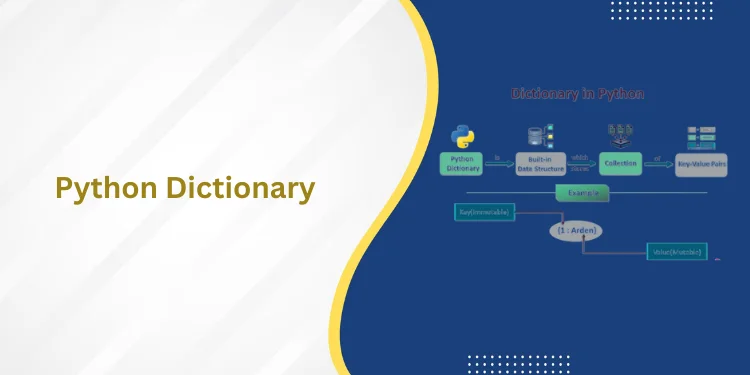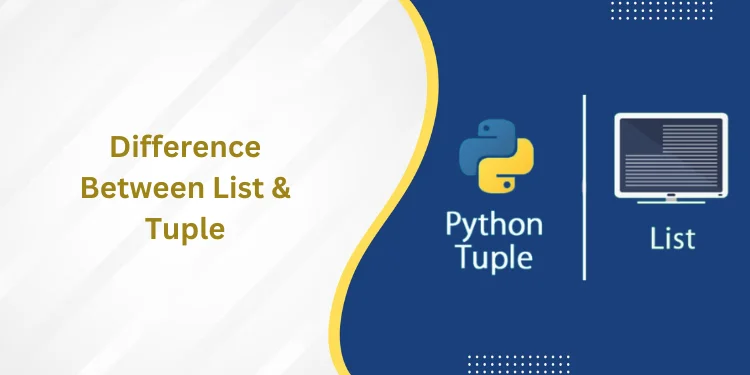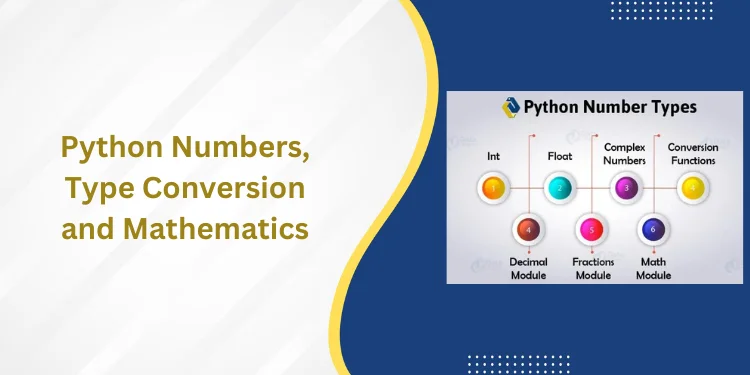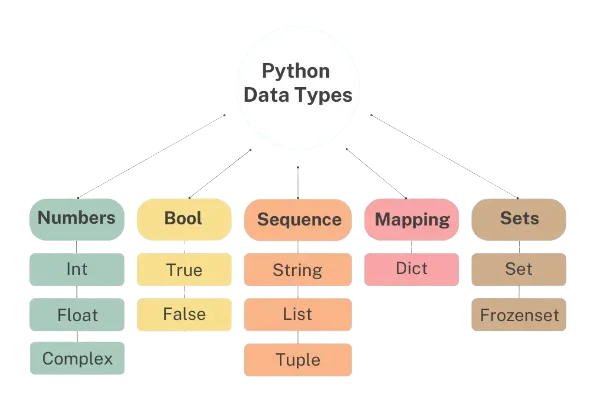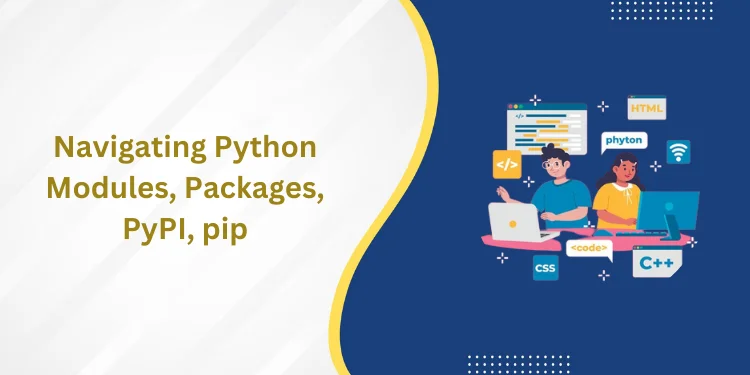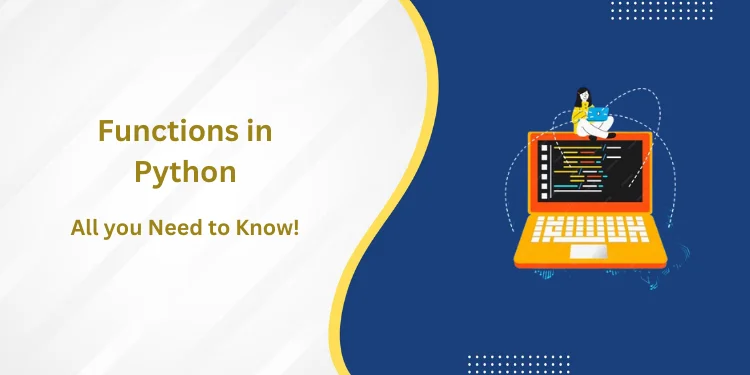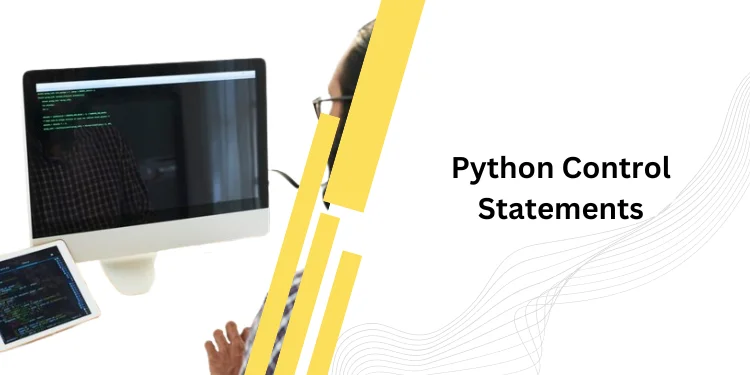Table of Contents
ToggleIntroduction
Are you looking to brush up on your .NET interview questions? If so, you’ve come to the right place! In this blog post, we’ll be introducing you to some of the most important .NET interview questions and topics you should be familiar with when preparing for a .NET interview questions.
The .NET framework is an essential component of Microsoft’s software development platform and is often used as the basis for web development and Windows applications. It’s important to have a solid understanding of the .NET framework and its various components in order to answer interview questions accurately. Familiarity with the core components such as C#ASP.NET, ADO.NET, LINQ, WCF and WPF will come in handy during your job interview.
When preparing for a .NET interview questions it is also essential to have extensive knowledge about common tasks, problem solving techniques and technical issues related to .NET development. Be prepared to answer coding related questions such as looping over collections or debugging memory leaks that are specific to this technology stack. You should also brush up on your programming concepts such as object oriented programming (OOP), design patterns, authentication & authorization models and caching mechanisms that are necessary for successful execution of an application built with the .Net framework.
Having a good understanding of how to set up an efficient development environment is also important during the hiring process. Your potential employer might ask how you would configure your environment during an interview; they might also provide an example problem and ask how you would go about solving it using the latest techniques available in the .Net platform.
What is the .NET framework?
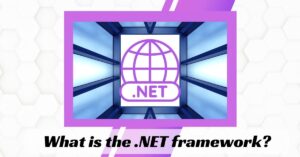
In .net Interview Questions, Interviewer may ask you about the .Net framework. The .NET Framework is a software development platform created by Microsoft that developers can use to build applications more efficiently. It includes a large library of pre-built code and an application runtime environment, as well as tools and services for building, deploying and managing applications on the Windows operating system.
Now that we’ve discussed the first blog .net Interview Question, let’s move on to the next one.
What is CLR?
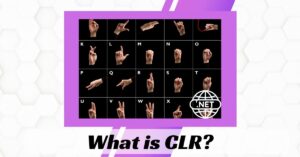
During a .net interview question, you may be asked various questions about the technology like what CLR is? CLR (Common Language Runtime) is a software development component and platform service for the .NET Framework. It is responsible for managing the execution of .NET programs, providing services that make the development process easier, improving performance, and enabling interoperability with other languages and platforms.
Let’s move on to the next question of blog.net Interview Questions….
Is ASP.NET different from ASP? If yes, explain how?
In the time of .NET interview questions, the interviewer may ask related to ASP.NET and ASP. Yes, ASP.NET is different from ASP. ASP (Active Server Pages) was developed by Microsoft in 1998 and is a server-side scripting language used to create dynamic web pages using HTML, XML, or other document types. In contrast, ASP.NET was released in 2002 as an updated version of the original ASP technology with additional features and capabilities designed for use on the .NET framework platform.
ASP uses scripting languages such as VBScript or JavaScript to interact with databases on the web server whereas ASP.NET is compiled into an intermediate language that runs more efficiently than scripts but still provides all the same features and flexibility of scripts.
Let’s take a step into the unknown as we explore the next question of the blog .net Interview Questions…
What is the state management in ASP.NET?
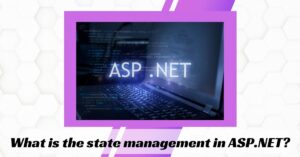
State management in ASP.NET is the process of storing data across pages and making them available to multiple pages without losing data. It is a technique used to maintain the user’s state across web pages. State management techniques can be divided into two categories: Client-Side State Management (Cookies, Query Strings, View State) and Server-Side State Management (Application Variables, Session Variables).
Now that we have answered the previous question in the blog .net Interview Questions, let’s proceed to the next one and explore it more in-depth.
What are the advantages of using sessions?
Sessions are especially useful when developing websites with authentication systems, shopping carts and other applications where tracking data across multiple pages is needed. Some of the advantages of using sessions include:
1) Increased Security: By keeping session variables on the server, sensitive information can be better protected from theft or alteration by malicious users. By using a session ID instead of storing personal information as cookies, you can further increase security since users cannot alter their session IDs like they would their own cookie values.
2) Storing User Preferences: Many websites allow users to save preferences such as which page layout they prefer or whether to open links in new windows automatically. This type of functionality is best accomplished with sessions since it requires remembering user settings from one page request to another page request.
3) Simplified Programming Logic: With sessions, developers don’t have to explicitly keep passing variable values around since all data is contained within the same object reference each time a new page loads up. This also leads to simplified programming logic when creating applications that require dynamic content depending on certain criteria (ex., displaying different content based on login status).
4) Increased Performance & Scalability: Since all application-related data related to one user is stored in the same place, you won’t need multiple database calls to assemble this info and display it back out on subsequent view requests.
Now, let’s move ahead to explore the next question in the blog .net Interview Questions.
What is HTTP handler?

In a HTTP Handler is a special .NET class that provides a communication interface between ASP.NET applications and the HTTP protocol.
What is .NET Framework and what are the main components of it?
The .NET Framework is a software development platform developed by Microsoft that runs primarily on Windows. It includes a large library of coded solutions to common programming problems, allowing developers to effectively create robust applications and services quickly. The .NET Framework includes several components, such as the Common Language Runtime (CLR), which provides memory management and other application services; the Base Class Libraries (BCL), which provide data structures and other essential functionality; the .NET Compact Framework, which provides support for mobile devices; the SQL Server, which provides database functionality; and the Windows Communication Foun
dation (WCF) for building distributed applications.
Let’s move forward to the next question of the blog .net Interview Questions….
What are the memory-mapped files?
Memory-mapped files are a mechanism for storing and sharing large data structures on disk, in a form that can be shared between multiple processes or machines. Memory-mapped files allow programs to treat a file as if it were an array of bytes stored in the computers’ main memory.
Let’s proceed to the next question of the .net Interview Questions blog.
What is Garbage collection?
Garbage collection is a system in the .NET framework which manages memory automatically. It helps to reclaim memory that was allocated for objects, but is no longer being used, so that those resources can be returned to the computer’s general pool of available memory.
Let’s dive into the next question of the .net Interview Questions blog, and see what surprises await us!
Which are the new features added in .NET framework 4.0?
The .NET Framework 4.0 added a wide range of new features, including:
- Managed Extensibility Framework (MEF)
- Parallel Computing:
- Workflow Foundation (WF):
- Dynamic Language Runtime (DLR)
- Data Access Technologies:
- Security Enhancements
Conclusion
It’s important to wrap up your .net interview questions with a strong conclusion. Take a few moments to summarize the main ideas that have been discussed throughout the interview and draw any final conclusions. Reiterate the value of the theme and express your gratitude for being invited for the interview. Highlight any unique qualifications you may have that are relevant to this role and ask whether there is anything else that needs to be discussed.
Use a soft close such as inviting them for further dialogue if they have any additional questions or if you can provide more information. Make sure to leave a lasting impression and link back to how you can help them accomplish their goals, as stated in your statement of interest during the introduction. With a thoughtful, professional conclusion, you are well on your way to acing your next .net interview!
Frequently Asked Questions
What are the most common dot net interview questions?
- What is the .NET framework?
- What languages does the .NET Framework support?
- What are the essential aspects of .NET?
- Describe the garbage collection process.
- What’s role-based security in .NET?
How to prepare for a net interview?
To ensure success during your upcoming .NET interview questions, it is important that you take the time to adequately prepare. One of the most effective methods of doing this is to read up on the .NET documentation. By familiarizing yourself with the standard functions of the framework and understanding how they apply within .NET, you will be better equipped to confidently answer any related .NET interview questions posed during the interview. Additionally, researching information about the company you are interviewing with can also be beneficial, as this can help give you an idea of what they may be looking for in a candidate and how your skillset can fit into their business objectives.
Let’s move onto the next FAQ of the .net Interview Questions…
What are the basic interview questions?
When preparing for a .net interview questions or any job interview, it is important to be familiar with the most common and essential questions that employers typically ask. Basic interview questions usually include inquiries about your background, experience, and qualifications, such as “Can you tell me about yourself?”, “What makes you qualified for this position?”, or “What experience do you have in this field?”. Other questions may focus on your problem-solving skills and ability to think on the spot, such as “Describe a time when you had to make an important decision” or “How would you handle a difficult situation?”
We shall now proceed to the following inquiry of the .NET Interview Questions blog.
What questions should an interviewer ask in ASP NET?
- What experience do you have developing web applications using ASP NET?
- How familiar are you with HTML and CSS when working with ASP NET?
- Are you comfortable troubleshooting any issues that arise with ASP NET applications?
- Have you implemented any unique features or optimizations for ASP NET websites or projects before?
- What challenges have you encountered when developing with ASP NET and how did you go about resolving them?
What is the net and NET Core support lifecycle?
The .NET and .NET Core support lifecycle offers varying levels of support for each release, depending on a few qualifications. Generally speaking, the length of time and degree of support are determined by the operating system and version the software is running on. Fortunately, .NET and .NET Core are supported across a wide range of operating systems and versions, so users should have no problem finding an up-to-date version that meets their needs.
The .NET Supported OS Policy provides detailed information on which operating systems are currently supported and what versions are available for use. This policy also outlines how long each version will be supported in order to help users plan ahead when it comes to upgrading or making other changes to their system.





